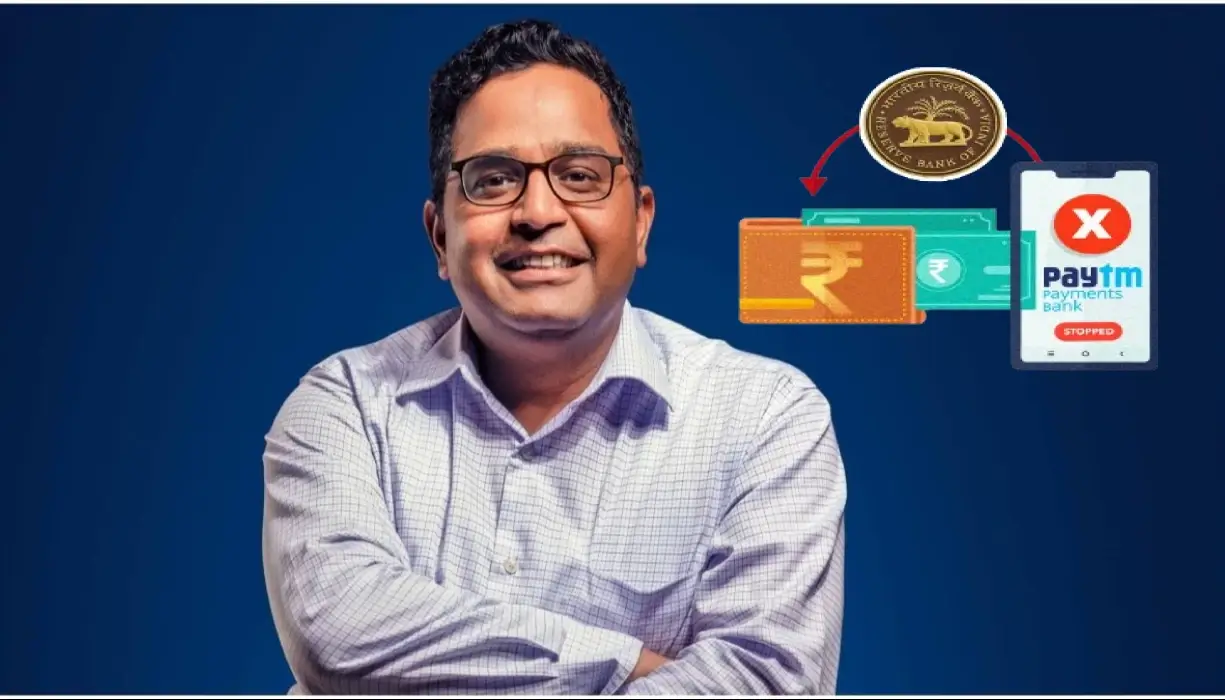TRENDING NEWS
Paytm’s Vijay Shekhar Sharma discussed exiting board, removing Paytm from bank name

📌 Paytm founder Vijay Shekhar Sharma considered resigning and removing "Paytm" from the Payments Bank due to mounting regulatory pressure from the RBI.
📌 Discussions arose after RBI inquiries regarding compliance issues at the bank, culminating in an order issued on January 31st.
📌 Shinjini Kumar and Manju Agarwal, independent directors, have exited the board, highlighting the need for more independent representation.
📌 Governor Das emphasizes "bilateral engagement" with fintech firms, urging them to take corrective actions while ensuring financial stability and consumer protection.
Vijay Shekhar Sharma, the founder of Paytm and part-time chairman of its Payments Bank, considered stepping down and removing the "Paytm" brand name from the bank in response to mounting regulatory scrutiny, according to sources familiar with the matter. While he ultimately remained on the board, the discussions highlight the ongoing friction between fintech firms and the Reserve Bank of India (RBI).
The talks occurred late last year amid inquiries from the RBI regarding compliance concerns, culminating in an order issued on January 31st. This issue resonates with other banks that have also received directives from the regulator seeking management and board changes.
"There was internal discussion for him to resign due to increasing regulatory queries," revealed a source. "The compliance notice was anticipated around December, and the idea was to remove 'Paytm' to distance the bank from the app, similar to RBI's earlier concerns about Paytm Mall on the main app."
The reason for not formally presenting the proposal to the board and regulator remains unclear. Paytm Payments Bank declined to comment, citing regulatory supervision.
Sharma holds a 51% stake in the bank, while the remaining share belongs to One 97 Communications, the parent company of the Paytm brand and app.
Another significant development came with the resignation of Shinjini Kumar, a former executive at Bank of America and PwC, in December. Although her resignation is accepted and a replacement is being sought, she reportedly attended two board meetings as a special invitee to comply with RBI's rules on independent directors.
Manju Agarwal, a former deputy managing director of SBI, has also reportedly exited the board. Experts suggest that the need for more independent directors than executive directors in the payments bank prompted Kumar's special invitee status.
Currently, the bank's board comprises three independent directors: Arvind Kumar Jain (former executive director, Punjab & Sind Bank), Pankaj Vaish (former Accenture managing director), and Ramesh Abhishek (former DPIIT secretary). From One 97 Communications, Dr. Srinivas Yanamandra (group head of regulatory affairs) and Bhavesh Gupta (chief operating officer and president) are on the board, along with Sharma and Surinder Chawla (managing director and CEO of Paytm Payments Bank).
Last week, the Noida-based fintech giant faced a major setback when its associate entity, Paytm Payments Bank, was restricted by the RBI from accepting new deposits or providing banking services after February 29th.
RBI Governor Shaktikanta Das promised to issue clarifications on the matter in the coming week during a post-monetary policy interaction with reporters. He emphasized the central bank's preference for "bilateral engagement" with regulated entities, encouraging them to take corrective actions within a reasonable timeframe.
The situation underscores the complex relationship between fintech firms and regulatory bodies in India. While Paytm continues to navigate compliance challenges, the RBI's stance signals its commitment to upholding financial stability and consumer protection within the evolving fintech landscape.
Latest News

STARTUP-STORIES








